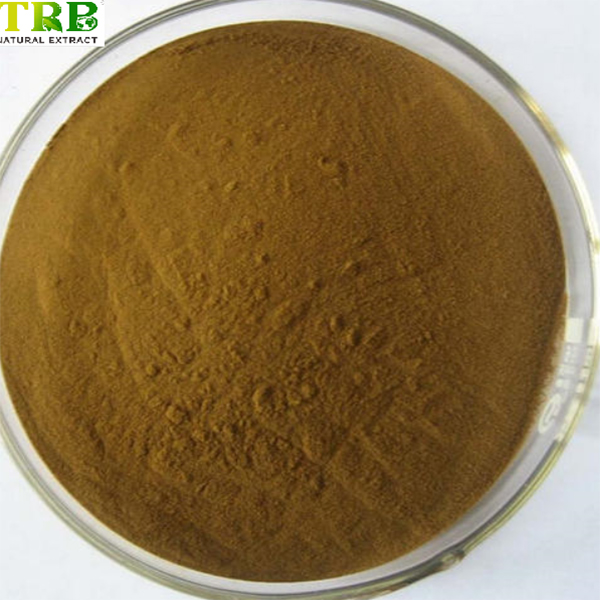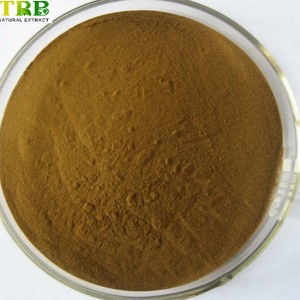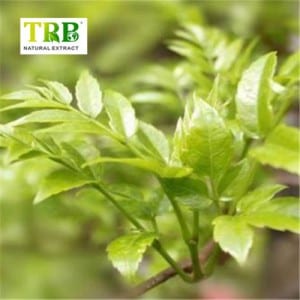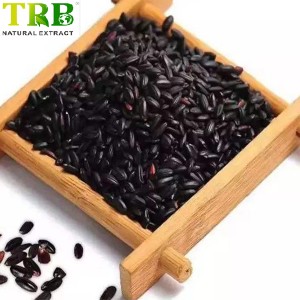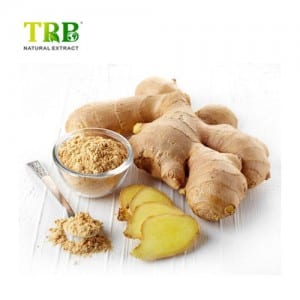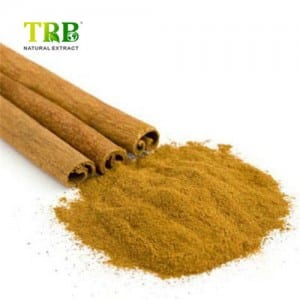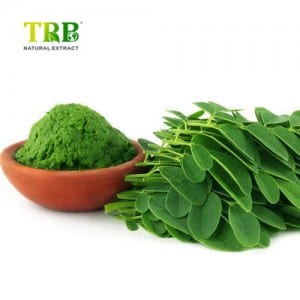Product Name: Bulk Anandamide powder
Synonyms:Arachidonoyl Ethanolamide, AEA powder, arachidonoylethanolamide, (5Z,8Z,11Z,14Z)-N-(2-hydroxyethyl)icosa-5,8,11,14-tetraenamide, N-arachidonoylethanolamine
CAS No:94421-68-8
Plant Part Used:Leaf
Ingredient:Apigenin
Assay:AEA oil: 90%
AEA powder: 50%
Colour:Yellowish powder
yellowish-brown oil
Packing: in 25kgs fiber drums
Storage:Keep container unopened in cool, dry place,Keep away from strong light
Shelf Life:24 months from date of production
Anandamide specifications
Bulk anandamide oil and anandamide powder are both available at Cima Science.
Anandamide oil: 70%, 90%
Anandamide powder: 50%
Food sources of anandamide
There are not so many direct natural sources for anandamide, and chocolate and truffles are on the top of them. Truffle is too expensive to get for anandamide, and chocolate seems to be the most reliable source for sustainable large quantities from the foods.
Anandamide and chocolates
Cacao beans, the source of chocolates, is also a rich source of anandamide. There are more than 300 chemical constituents in chocolate. Caffeine, theobromine, and phenylethylamine are known ingredients that elevate our mood. The theobromine actually helps stimulate the brain to release more anandamide to make us feel happier.
Why anandamide is so increasingly popular in recent years?
Before answering this question, we need to mention cannabis, THC & CBD (Cannabidiol) first.
Cannabis, also known as marijuana, is a flowering plant, and people use it as a party drug or smoke it to create a “high” or “stoned” feeling.
The active ingredient in cannabis that makes you high is THC, with the full name as delta 9-Tetrahydrocannabinol. When people smoke marijuana, the tetrahydrocannabinol in cannabis stimulates the cannabis receptor, making people feel a sense of happiness and mental well-being.
Cannabis is illegal in many countries since too many people will be addicted to it.
However, Uruguay is the first country to legalize cannabis in the year 2013.
On Oct 17 of 2018, the Canadian government declared that cannabis become legal all over Canada.
In the United States, 10 states and the District of Columbia have legalized the recreational use of cannabis although it remains federally illegal.
Anandamide vs THC
Cannabis is a plant source of THC.
Anandamide is the human version of THC.
Scientist discovered AEA in 1992 and THC in 1964.
Anandamide releases mood-enhancing chemicals from the brain, and its biological mechanism is similar to that of tetrahydrocannabinol in cannabis.
Yes, they target the same cannabis receptor, and we’ll talk about the mechanism of AEA soon.
However, the potency of THC is much stronger than AEA. The feeling of taking AEA is less pleasant than that of smoking cannabis since anandamide metabolizes quickly in the body, probably within 30 mins.
Since cannabis is forbidden in most countries, supplements, foods, beverages or cosmetics containing THC is illegal. In this sense, anandamide is the future.
Anandamide vs CBD
The marijuana plant has 400+ compounds, and more than 60 different cannabinoids bind to receptors in our body.
CBD is the short form of cannabidiol and is one of those 60 cannabinoids. CBD is a phytocannabinoid in cannabis. More than 40% of cannabis extract is CBD.
Scientists and physicians found that CBD is able to improve anandamide’s level in the brain’s synapses as an anandamide reuptake and breakdown inhibitor. Fatty acid amide hydrolase, also known as FAAH for short, is an enzyme that breaks down AEA. That’s how CBD inhibits FAAH and improves AEA naturally.
CBD can do much more than that. CBD can be beneficial to the entire Endocannabinoid System
Mechanism of action of anandamide
How does anandamide work? It’s complicated indeed. You may first need to know about the endocannabinoid system, the CB1 receptor, and CB2 receptor.
CB1
THC has a high affinity for the CB1 receptor, bonding strongly to the receptor.
In addition, anandamide effects a “high” feeling by affecting the CB1 receptor, activating the brain’s reward system and producing pleasure chemicals such as dopamine Hormone.
CB2
You may find CB2 receptors in immune cells throughout your body. The CB2 receptor is in charge of neuroprotective responses and fighting against inflammation. Scientists believe that the CB2 receptor is beneficial to the pain relieving.
CB1 receptors are concentrated primarily in the brain and CNS system, while CB2 receptors are mainly found in the immune system.
Endocannabinoid System (ECS)
Before discussing the functions of the endocannabinoid system (ECS), it is important to understand its components. The ECS is comprised of cannabinoid receptors, endogenous ligands (binding molecules) for those receptors, and enzymes that synthesize and degrade the ligands.
| classical ECS | Extended ECS | |
| cannabinoid receptors | CB1, CB2 | PPAR,GPR,TRPV,FLAT,FABP |
| endogenous ligands | AEA, 2-AG | OEA,PEA,2-AGE,NADA,VA,EPEA,SEA,OA,DHEA |
| Enzymes degrading ligands | FAAH,MAGL | ABHD6,COX-2,ABHD12 |
| Enzymes synthesizing ligands | DAGL,NAT,NAPE-PLD | SHIP1,PTPN22,PLC,GDEI,ABHD4 |
he inner circle (light gray) represents the ‘classical’ endocannabinoid system. The outer circle (dark gray) includes components of the extended endocannabinoid system. As you may see, PEA, SEA, and OEA are also included in the endocannabinoid system.
The ECs have a central nervous system (CNS) origin and include anandamide (AEA), 2-arachidonoylglycerol (2-AG), noladin ether, virodhamine and N-arachidonylodopamine (NADA). And anandamide is the first and also the most important ligand in the endocannabinoid system.
Anandamide and 2-AG
As mentioned above, anandamide (AEA) and 2-arachidonoylglycerol (2-AG) are the two primary ligands in the ECS system. The ECS helps regulate functions such as sleeping, immune system, and pain modulation.
Scientists discovered Anandamide in the year of 1992 and 2-AG 3 years later. AEA and 2-AG have a very similar molecular structure and thus same physical and chemical properties.
Anandamide mainly targets the receptor CB1 in the brain, while 2-AG targets both CB1 and CB2 receptors (in the immune system).
Both Anandamide and 2-AG are synthesized from arachidonic acid, an Omega-6 fatty acid, with different pathways and synthesizing enzymes. Degrading enzyme FAAH (Fatty Acid Amide Hydrolase) for AEA and 2-AG by MAGL enzyme (Monoacylglycerol Lipase).
Anandamide Benefits
Scientific evidence suggests anandamide may be good for anti-anxiety, mental health, memory processing, appetite control, pain relief, neuroprotection, and more.
Anandamide and anxiety
People name Anandamide “bliss molecule” because AEA is able to make you feel happy.
Converging evidence suggests that the endocannabinoid system is an important constituent of neuronal substrates involved in brain reward processes and emotional responses to stress.
Pharmacological blockade of the enzyme fatty acid amide hydrolase (FAAH), which is responsible for intracellular anandamide degradation, produces anxiolytic-like effects in rats without causing the wide spectrum of behavioral responses typical of direct-acting cannabinoid agonists.
These findings suggest that anandamide contributes to the regulation of emotion and anxiety and that FAAH might be the target for a novel class of anxiolytic drugs.
For more detailed information for anandamide effects on anxiety, please read the literature below:
- The endogenous cannabinoid anandamide has effects on motivation and anxiety that are revealed by fatty acid amide hydrolase (FAAH) inhibition.
- Anandamide hydrolysis: a new target for anti-anxiety drugs?
- Reduced anxiety-like behavior induced by genetic and pharmacological inhibition of the endocannabinoid-degrading enzyme fatty acid amide hydrolase (FAAH) is mediated by CB1 receptors.
Anandamide and pain relief
ome scientific evidence shows that inhibition of FAAH (the enzyme that degrades anandamide in the brain) greatly reduced nociceptive responses in many pain models.
FAAH inhibitors considerably enhance anandamide levels in the brain and primarily induced CB1 receptor-mediated antinociception, suggesting that endogenous anandamide, when protected from degradation, can produce antinociception through CB1 receptors.
Palmitoylethanolamide (PEA) is an endogenous ingredient that boosts anandamide activity. The human body naturally yields PEA to fight against inflammation and pain. Over 800,000 patients have been PEA pills and dietary supplements to treat pain in the world.
To learn more about PEA, please visit our PEA page.
Anandamide and runner’s high
Let’s first look at the definition of what a runner’s high is: a feeling of euphoria with reduced anxiety and a lessened ability to feel pain. After a long aerobic exercise, you’ll experience such a pleasant phenomenon during the long-term running.
In the past decades, researchers thought that endorphin is the only factor responsible for runners high since the increased levels of β-endorphins are easily found in the blood. As you may already know, endorphin does have the ability to enhance our mood and create a euphoric feeling.
However, scientists now believe that it’s the endocannabinoid system (ECS) and anandamide that cause a runner’s high. Anandamide is able to cross the blood-brain barrier and renders the central effects of peripheral opioids. But endorphin can’t.
If you want to learn about the experiment regarding runner’s high, read this literature: A runner’s high depends on cannabinoid receptors in mice
Nutritionists find that anandamide may also be a good appetite controller. Anandamide may stimulate your hunger and the desire to eat more. If you are on the way to lose weight, think carefully before taking AEA.
Supplements containing anandamide
Are you looking for anandamide supplements or anandamide pills?
Unfortunately, there is none for the time being. Anandamide is such a novel ingredient that no dietary supplement brands have ever tried it in their current formulas.
You may find a company named Sun Potion is selling anandamide powder on Amazon. However, that’s not the truth. It is only a raw cacao powder, but not standardized anandamide extract. And the active content in the powder form is very low, and you may not experience AEA’s effectiveness.
Of course, you may find that some suppliers are selling anandamide reference standards or reagents. The bad thing is that they only sell at 5mg, 25mg, and only for research only. No bulk AEA oil information is available at all.
Good news is that supplement manufacturers in the United States and European countries such as Germany, France, Netherland, UK, Spain, Italy, etc. are ordering AEA samples from Wuxi Cima Science Co., Ltd, and bulk commercial production is under the way.
Bulk Anandamide Powder: Premium Quality, High Bioavailability for Enhanced Formulations
Product Overview
Anandamide, known as the “Bliss Molecule,” is an endogenous cannabinoid critical to regulating pain, mood, appetite, and immune function through the endocannabinoid system (ECS) . Our bulk Anandamide powder leverages advanced LEO-HB® Technology to overcome traditional solubility challenges, offering a cold water-dispersible and soluble powder ideal for functional foods, beverages, gummies, and effervescent tablets—without harmful solvents or artificial additives .
Key Features & Benefits
- Superior Bioavailability:
LEO-HB® Technology transforms Anandamide into a free-flowing powder with enhanced absorption, ensuring optimal delivery in diverse formulations . - Multifunctional Applications:
- Dietary Supplements: Supports ECS balance, mood regulation, and cognitive health .
- Functional Foods: Easily integrates into drinks, powders, and confectionery (e.g., chocolate, which naturally contains Anandamide) .
- Research & Development: Used in studies on pain management, neuroprotection, and reproductive health .
- Natural & Safe:
Made with food-grade ingredients, free from synthetic emulsifiers, ensuring digestive safety . - Technical Specifications:
- Chemical Formula: C₂₂H₃₇NO₂ | Molecular Weight: 347.53 g/mol .
- Appearance: White powder | Purity: >95% (HPLC verified) .
- Storage: -20°C (long-term) | Solubility: Soluble in methanol, DMSO, and cold water .
Why Choose Our Anandamide Powder?
- Innovative Formulation: LEO-HB® Technology ensures stability and versatility for novel product development .
- Research-Backed Efficacy: Demonstrated roles in neurogenesis, anti-inflammatory responses, and cellular homeostasis .
- Global Compliance: Shipped with dry ice to maintain integrity, compliant with international standards .
Keywords
- Bulk Anandamide Powder
- Cold Water Soluble Anandamide
- Endocannabinoid System Supplements
- LEO-HB® Bioavailable Formula
- Anandamide for Functional Foods
